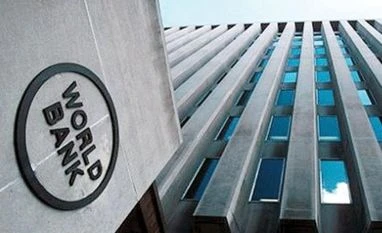The International Bank for Reconstruction and Development (IBRD), part of World Bank, will provide a $318 million loan for the Tamil Nadu Irrigated Agriculture Modernisation Project to promote climate resilient agriculture technologies, improve water management practices and increase market opportunities for small and marginal farmers. About 500,000 farmers, of which a majority are small and marginal, are expected to benefit from improved and modernised tank irrigation systems.
The Government of India, the Government of Tamil Nadu and the World Bank today signed a loan agreement in this regard. The project will rehabilitate and modernise about 4,800 irrigation tanks and 477 check dams, spread across 66 sub-basins, in delivering bulk water to irrigation systems. The loan has a five year grace period and a maturity of 19 years.
Tamil Nadu, a water-stressed state, continues to experience water shortages which are expected to further worsen in the future. "The works on irrigation tanks will improve the reliability and availability of irrigation water for farming communities, making them less prone to climatic hazards. More than 160,000 ha of currently partially irrigated lands will come into full irrigation under this project," said Sameer Kumar Khare, Joint Secretary, Department of Economic Affairs, Ministry of Finance.
"This project will help Tamil Nadu scale up its efforts to unlock the full potential of its agriculture sector. It will support farmers improve the efficiency of water used in farming, diversify into high-value crops, and produce crops that are resilient to the increasing threats of climate change," said John Blomquist, program leader and acting country director, World Bank, India.
Paddy is the dominant crop occupying 34 per cent of total cropped areas, whereas fruits and vegetables are grown on 11 percent and pulses and oilseeds on 14 per cent of total cropped areas. By helping farmers' access modern technologies, linking them to markets, and providing postharvest management support, the project will enable farmers to shift from a mono-crop paddy system to mixed cropping including high-value crops such as fruits, vegetables, spices, pulses, oilseeds, and millets.
To enhance the ability of crops to withstand expected adverse impacts of climate change, the project will support smallholder producers adopt new conservation technologies such as the System of Rice Intensification (SRI) and Sustainable Sugar Initiative (SSI). They reduce average water usage by 35 per cent and increase yields by 22 per cent per ha. The project is expected to increase the yield of rice, maize, and pulses by 18-20 per cent. It will also coordinate with other World Bank-supported projects in Tamil Nadu and at the national level, including the Tamil Nadu Rural Transformation Project, National Hydrology Project, and National Groundwater Improvement Project to ensure synergy and enhance long-term project impact.
To read the full story, Subscribe Now at just Rs 249 a month
Already a subscriber? Log in
Subscribe To BS Premium
₹249
Renews automatically
₹1699₹1999
Opt for auto renewal and save Rs. 300 Renews automatically
₹1999
What you get on BS Premium?
-
Unlock 30+ premium stories daily hand-picked by our editors, across devices on browser and app.
-
Pick your 5 favourite companies, get a daily email with all news updates on them.
Full access to our intuitive epaper - clip, save, share articles from any device; newspaper archives from 2006.
Preferential invites to Business Standard events.
Curated newsletters on markets, personal finance, policy & politics, start-ups, technology, and more.
Need More Information - write to us at assist@bsmail.in
)